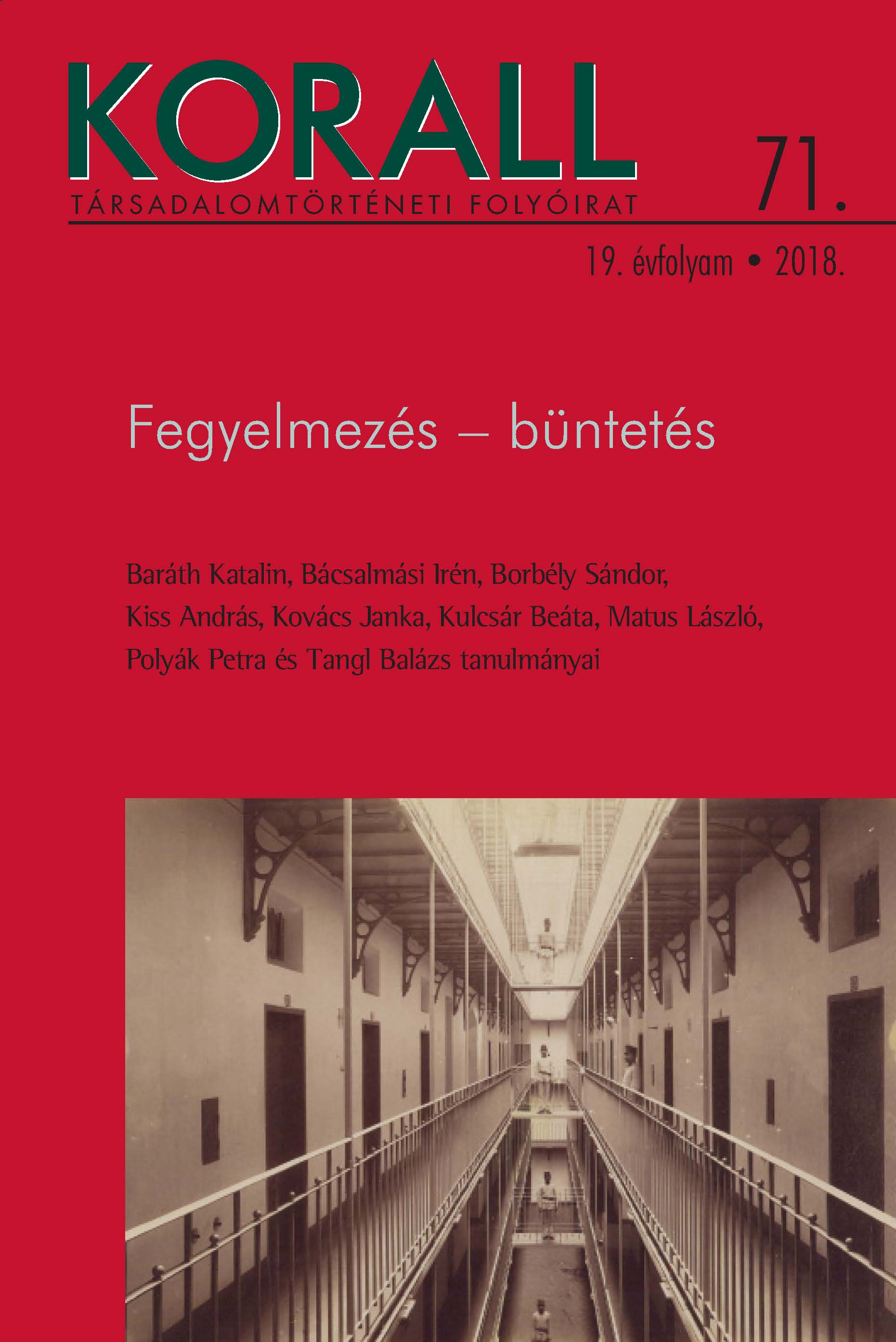Fegyelmezési technikák és adaptációs mechanizmusok Kárpátalja határvidéki régiójában
Disciplinary Techniques and Adaptation Mechanisms in the Transcarpathian Border Region
Author(s): Sándor BorbélySubject(s): Local History / Microhistory, Social history, Post-War period (1950 - 1989)
Published by: KORALL Társadalomtörténeti Egyesület
Keywords: history;communism;crime and punishment;everyday life history;microhistory;
Summary/Abstract: Through the example of a Transcarpathian village, Tiszapéterfalva, the study presents the micro-analysis of post-1945 Soviet political dictatorship. By exploring the social and political conflicts as well as the interactions and tensions between the local society of the village and the state as external power, the study focuses on everyday forms of resistance against dictatorship, such as theft, breaches of work discipline, slowdown, sabotage, workforce migration. Parallel to these, the study examines the corresponding reprisal and corrective procedures, such as disciplinary notices, fines, deducting workdays or remuneration, demotion, which were deployed by rural collectives in order to create, reinforce and consolidate the communist regime in the 1960s and 1970s. The study argues that the adaptation techniques emerging in various fields of social life – especially in the transforming circumstances of property rights, labour organisation, income structure and political situation – and the corresponding corrective procedures together formed a system whereby they mutually controlled one other.
Journal: Korall - Társadalomtörténeti folyóirat
- Issue Year: 2018
- Issue No: 71
- Page Range: 149-174
- Page Count: 26
- Language: Hungarian

